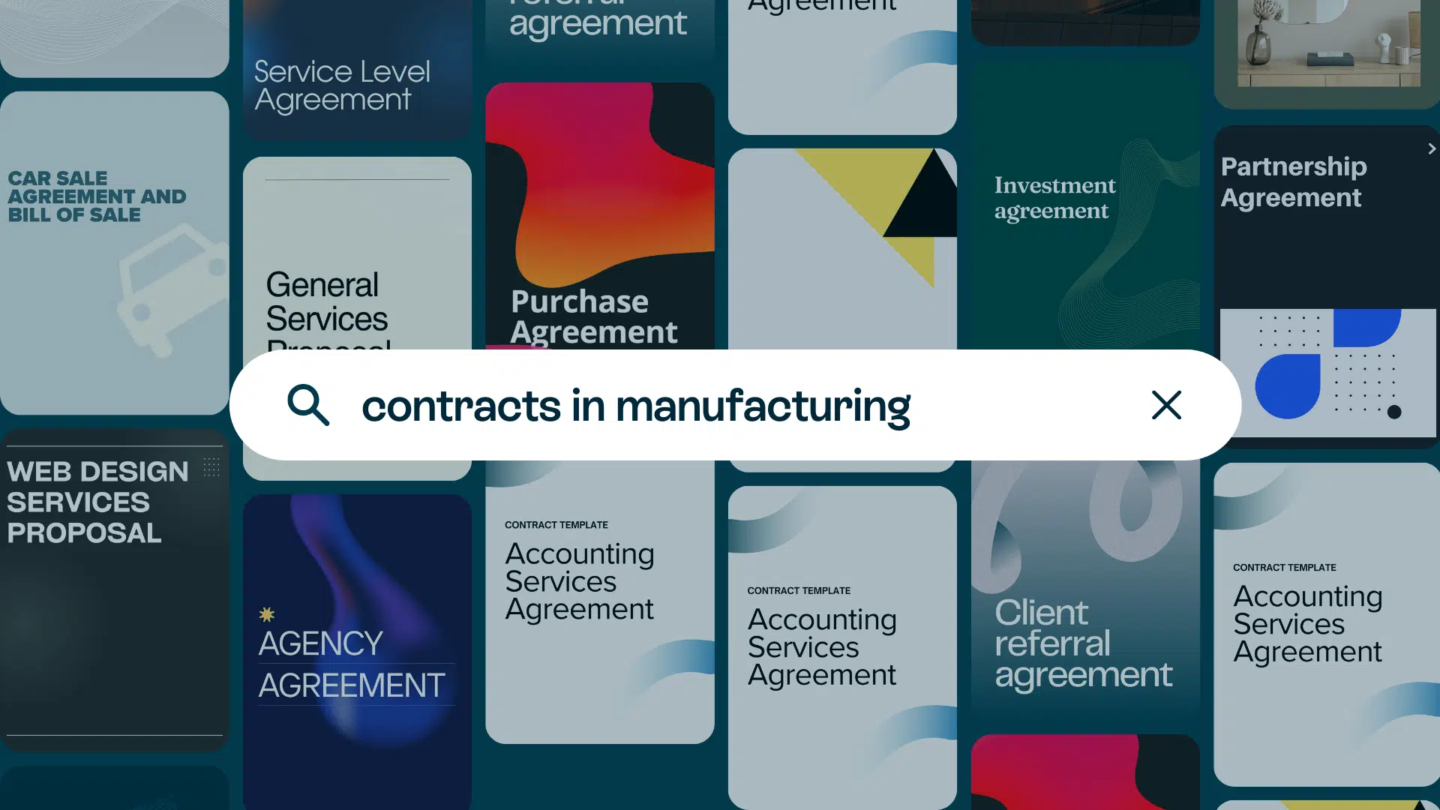Contracts are legally binding agreements that define the relationship between parties involved. They outline the rights, obligations, and expectations of each party for a specified period. But what happens when a contract reaches its expiration date? Several outcomes are possible, depending on the terms of the contract and the intentions of the parties involved. Let’s take a closer look at these possibilities and how they can affect business operations and relationships.
What happens when a contract reaches the end of its lifecycle
- Renewal or Extension: One of the most common outcomes when a contract expires is that the parties agree to renew or extend the agreement. Many contracts contain clauses that provide the option for renewal, either automatically or through a mutual decision. Automatic renewals are often specified in the original contract, where the agreement continues for a set period unless one of the parties provides notice of termination before the expiration date. This allows for a seamless continuation of the business relationship, especially if both parties are satisfied with the current terms. Alternatively, if automatic renewal is not part of the contract, the parties may choose to negotiate a renewal or extension manually. In such cases, the terms of the renewed or extended contract may be adjusted to reflect changes in circumstances, market conditions, or business priorities.
- Termination: In cases where neither party wishes to renew or extend the contract, the agreement is considered terminated once it expires. This means that the rights and obligations defined in the contract cease to apply, and the business relationship ends. Termination does not necessarily indicate a negative outcome; it could simply mean that the contract has fulfilled its purpose or that the parties no longer need to work together. However, it’s important to be mindful of any post-termination obligations specified in the contract, such as confidentiality agreements or non-compete clauses, which may remain in effect even after the contract has expired.
- Lapses in Obligations: If a contract is not renewed or extended, the obligations outlined in the agreement no longer apply. This can have a significant impact on business operations, particularly if the contract involves the delivery of essential goods, services, or resources. For instance, if a supplier contract expires without renewal, the business may need to find alternative suppliers to avoid disruptions in the supply chain. Similarly, if a service agreement expires, the party receiving the service may need to make alternative arrangements to ensure continuity. It’s important for businesses to proactively manage contract expirations to prevent lapses that could affect their operations or create uncertainty in their relationships with clients, partners, or vendors.
- Legal Risks: Continuing to operate under an expired contract without formally renewing or extending it can expose both parties to legal risks. In some cases, parties may choose to continue working together even after the contract has expired, assuming that the terms of the original agreement still apply. However, this assumption can lead to confusion or disputes if issues arise, as the legal protections provided by the contract are no longer in effect. To mitigate these risks, it’s essential for businesses to establish clear procedures for managing contract expirations and ensure that all agreements are formally renewed, extended, or terminated in a timely manner.
Read also: Terminating a contract: What you need to know

How to automate contract expirations
Manually tracking the expiration dates of contracts can be a daunting and time-consuming task, especially for businesses that manage multiple agreements with different clients, suppliers, or partners. Failing to keep track of contract expirations can lead to missed renewal opportunities, lapses in service, or legal risks. Fortunately, automation tools like Oneflow can streamline the process of managing contract expirations and ensure that no detail is overlooked. Here’s how automating contract management can help businesses stay on top of their agreements and avoid potential issues.
- Automated Notifications: One of the key features of contract management software like Oneflow is the ability to send automated notifications when a contract is approaching its expiration date. These notifications can be customised to provide ample time for the business to review the contract, renegotiate terms, or initiate the renewal process. By receiving timely reminders, businesses can avoid last-minute rushes and ensure that they have sufficient time to assess whether renewing or extending the contract is the best course of action.
- Centralised Contract Database: With contract management software, businesses can store all of their agreements in a centralised digital database. This makes it easy to track expiration dates, renewal options, and other important milestones. Having all contracts stored in one place also eliminates the risk of losing important documents or missing critical deadlines. Additionally, a centralised database allows for better organisation and accessibility, making it easier for legal teams, management, or other stakeholders to review contracts and stay informed about their status.
- Custom Workflows: Another advantage of contract management software is the ability to set up custom workflows that are triggered when a contract nears its expiration date. For example, the system can automatically notify the legal team to review the contract, initiate discussions with the other party, or generate a renewal draft. This level of automation reduces manual intervention and ensures that the renewal process is carried out smoothly and efficiently. Businesses can also create workflows tailored to their specific needs, such as escalating high-priority contracts to senior management for review or automatically renewing contracts that meet certain criteria.
- Seamless Renewals: If the decision is made to renew a contract, contract management software like Oneflow can simplify the process by allowing businesses to complete the renewal digitally. This eliminates the need for physical paperwork and manual data entry, reducing the risk of errors or delays. The digital renewal process also ensures that all relevant parties can review and approve the updated contract terms before the agreement is finalised. By streamlining the renewal process, businesses can maintain continuity in their relationships with clients, partners, or suppliers while minimising the administrative burden of managing contracts.
Read also: How long does a contract without an expiration date last?

Best practices for expired contracts
Managing expired contracts effectively is essential for maintaining strong business relationships and mitigating potential risks. When a contract expires, it’s important to handle the situation with care and professionalism to avoid misunderstandings, disputes, or disruptions to business operations. Here are some best practices to follow when dealing with expired contracts:
- Proactively Review Contracts Before Expiration: It’s always a good idea to review contracts well in advance of their expiration date. This gives both parties the opportunity to assess whether renewing or extending the agreement is beneficial, or if it’s time to part ways. Reviewing contracts ahead of time also allows businesses to identify any necessary changes to the terms and conditions, such as adjusting pricing, service levels, or performance expectations. By taking a proactive approach, businesses can avoid the stress of last-minute negotiations and ensure that the expiration process is handled smoothly.
- Communicate with Contracting Parties: Open and transparent communication with the other party is key to managing contract expirations effectively. It’s important to initiate discussions about the future of the contract well before the expiration date to avoid any misunderstandings or surprises. Whether the decision is to renew, extend, or terminate the agreement, both parties should be on the same page about how to proceed. Clear communication also helps maintain trust and professionalism in the business relationship, even if the contract is not renewed.
- Formalise the Expiration Process: When a contract expires, it’s important to formalise the process by ensuring that both parties agree in writing on how the expiration will be handled. This could involve signing a termination agreement, drafting a renewal contract, or extending the current agreement. Formalising the expiration process provides clarity and ensures that both parties understand their rights and obligations moving forward. It also helps prevent disputes that could arise from assumptions or misunderstandings about the status of the contract.
- Keep Records of Expired Contracts: Even after a contract expires, it’s important to retain records of the agreement for future reference. These records can be valuable in resolving potential disputes or informing future contract negotiations. Additionally, keeping a record of expired contracts allows businesses to review past agreements and identify areas for improvement in their contract management practices.
- Use Contract Management Software: Finally, implementing contract management software like Oneflow can help businesses stay organised and ensure that they are on top of their contract expiration dates. By automating key tasks such as sending notifications, storing contracts, and managing renewals, contract management software reduces the risk of overlooking expired contracts and makes the entire process more efficient.
By following these best practices, businesses can avoid the common pitfalls associated with expired contracts and maintain control over their business agreements.







